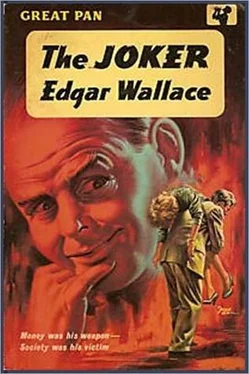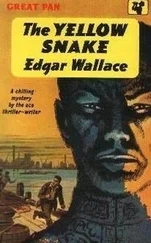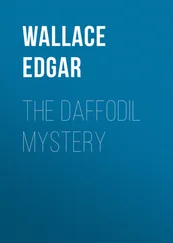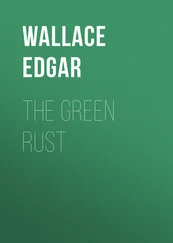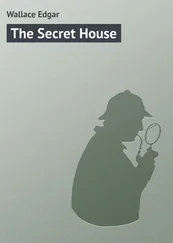Edgar Wallace - The Joker
Здесь есть возможность читать онлайн «Edgar Wallace - The Joker» весь текст электронной книги совершенно бесплатно (целиком полную версию без сокращений). В некоторых случаях можно слушать аудио, скачать через торрент в формате fb2 и присутствует краткое содержание. Год выпуска: 0101, Жанр: Старинная литература, на английском языке. Описание произведения, (предисловие) а так же отзывы посетителей доступны на портале библиотеки ЛибКат.
- Название:The Joker
- Автор:
- Жанр:
- Год:0101
- ISBN:нет данных
- Рейтинг книги:5 / 5. Голосов: 1
-
Избранное:Добавить в избранное
- Отзывы:
-
Ваша оценка:
- 100
- 1
- 2
- 3
- 4
- 5
The Joker: краткое содержание, описание и аннотация
Предлагаем к чтению аннотацию, описание, краткое содержание или предисловие (зависит от того, что написал сам автор книги «The Joker»). Если вы не нашли необходимую информацию о книге — напишите в комментариях, мы постараемся отыскать её.
The Joker — читать онлайн бесплатно полную книгу (весь текст) целиком
Ниже представлен текст книги, разбитый по страницам. Система сохранения места последней прочитанной страницы, позволяет с удобством читать онлайн бесплатно книгу «The Joker», без необходимости каждый раз заново искать на чём Вы остановились. Поставьте закладку, и сможете в любой момент перейти на страницу, на которой закончили чтение.
Интервал:
Закладка:
Aileen did not expect to see him again that day and was surprised, almost pleasurably, when he walked into the outer office and sent in his name. She was on the point of leaving and the office boy, impatient to be gone, misinterpreted the colour that came to her cheeks.
‘You’ll be getting me a very bad name, Mr Carlton,’ she said as they went into the street together.
‘Did I tell you that my front name was Jim, or James, as the case may be?’ he asked. ‘Shall we try something more snappy in the restaurant line? I know a place in Soho—’
‘No, I think I’ll go home now.’
‘I wanted to talk to you about our Mrs Gibbins,’ he said flippantly, though he was not feeling at all flippant. ‘And I told our people that I can be found there if I am wanted.’
‘Have you had any news?’ she asked; and he guessed by her penitent tone that she had altogether forgotten the existence of the charwoman. At any rate she did not demur when he handed her into the car and she accepted his restaurant, dingy though it was, without protest.
They were passing from the street when Jim heard his name called and, looking round, saw a headquarters man.
‘Came through just after you left, sir.’
Jim read the hastily-written phone message.
‘I’ll be back in an hour,’ he said, and followed the girl who was waiting for him in the vestibule.
When they were seated: ‘I want to ask you: was Mrs Gibbins in the flat that night your uncle’s safe was burgled?’
She considered. ‘No, she wasn’t there; at least, she oughtn’t to have been there. She came later, you remember. I opened the door to her.’
‘Oh!’ he said, and she smiled.
‘What does “Oh!” mean?’ And then quickly: ‘You don’t think she was the burglar, do you?’
‘No, I don’t think that,’ he said; his tone was very grave—she wondered why. ‘Tell me something about her; was she well educated?’
Aileen shook her head.
‘No, she was rather illiterate. I’ve had many of her notes, and they were scarcely decipherable. The spelling was—well, very original.’
‘Oh!’ he said again, and she could have boxed his ears.
‘Well, that’s that!’ he said at last. ‘I don’t think that even your uncle, with his well-known passion for humanity, will so much as shed a silent tear. She was just nothing, nobody—a wisp of straw caught up in the wind and deposited God knows where! Stale fruit under the dustman’s broom. Horrible, isn’t it? Think of it! All the theatres will soon be crowded and people will be screaming with laughter at the antics and clowning of the comedians! There will be a State ball at the Palace and tonight happy men and women will I be dancing on a hundred floors. Who cares about Mrs Gibbins?’
He was very serious, and a minute before he had been almost gay.
‘The passing of a friendless woman is a small thing.’ He rubbed his nose irritably. ‘And now it is a big thing!’ he said, raising a warning finger and looking at her. ‘Mrs Gibbins is stirring the minds of eighteen thousand London policemen, who if need be would have the support of the whole Brigade of Guards and every one of these dancers, diners and theatregoers would move with one accord and not rest day or night till they found the man who struck her down and dropped her poor, wasted body in the waters of the Regent’s Canal!’ She half rose, but he motioned her down. ‘I’ve spoilt your dinner and I’ve spoilt my own, too,’ he said.
‘Dead?’ she whispered. He nodded. ‘Murdered?’
‘Yes…I think so. They took her out of the canal a few minutes before I left the office, and there were marks to show that she’d been bludgeoned. I had the news just before I came in. What was she doing near the Edgware Road—in Regent’s Park, let us say? Give her two days to drift as far.’
The waiter came and stood at his elbow in an attitude of expectancy. The girl shook her head. ‘I can’t eat.’
‘Omelettes,’ said Jim. ‘That isn’t eating; it’s just nourishment.’
Arthur Ingle had the discomfort of a police visitation, but he knew nothing of Mrs Gibbins, knew much less indeed than his niece.
‘I have seen the woman, but I shouldn’t recognise her.’
This accorded with the information already in their possession, and the two detectives who called had a whisky-and-soda with him and departed.
The landlady of the Rents could say no more than she had said on the previous afternoon to Sub-Inspector Carlton.
Jim went down himself to see this worthy soul; and he had a particular reason, because on that morning, ‘regular as clockwork,’ came the envelope which contained Mrs Gibbins’s quarterly allowance; and that lady was rather in a fluster, because the letter had not arrived.
‘No, sir, it was never registered, that’s why I feel so awkward about it. People might think…but you can ask the postman yourself, sir.’
‘I’ve asked him,’ smiled Jim. ‘Tell me, where were those letters posted? You must have seen the date-stamp at some time or other.’
But she swore she hadn’t; she was not inquisitive, indeed regarded inquisitiveness as one of the vices which had come into existence with reading newspapers. She did not explain the connection between the popular press and the inquiring mind, though it was there plain to be seen.
The local police inspector had cleared the wardrobe and drawers of all portable articles, including the bag.
‘I told him you found a paper in the bag, but he couldn’t see it, sir, though he searched high and low for it.’
‘There wasn’t a paper to find,’ said Jim untruthfully.
His position was a delicate one. He had withdrawn important evidence from what might perhaps be a very serious case. There was only one course to take and this he followed.
Returning to Scotland Yard, he requested an interview with the Commissioners, explained what he had done, told them frankly his suspicions and asked for the suppression of the evidence he held. The consultation was postponed for the attendance of a representative of the Public Prosecutor, but in the end he had his way, and when the inquest was held on Annie Maud Gibbins the jury returned an open verdict, which meant that they were content with the statement that the deceased woman had been ‘found dead’, and expressed no opinion as to how she met her fate—a laudable verdict, since no member of the jury, not even the coroner, nor the doctors who testified with so many reservations, had the slightest idea how the life of Mrs Gibbins, the charlady, had gone out.
CHAPTER 9
AILEEN RIVERS was annoyed, and since the object of her annoyance lived in the same room, and to use a vulgar idiom, under the same hat as herself, a highly unsatisfactory state of affairs was produced. She was annoyed because she had not seen Mr James Carlton for a week. But she was furious with herself that she was annoyed at all. Mr Stebbings, that stout lawyer, had reached an age when he was no longer susceptible to atmosphere, yet even he was conscious that his favourite employee had departed in some degree from the normal. He asked her if she was not well; and suggested that she should take a week off and go to Margate. The suggestion of Margate was purely mechanical; he invariably prescribed Margate for all disorders of body and mind, having been once in the remote past cured of the whooping cough in that delightful town. It was not Margate weather, and Aileen was not Margate-minded.
‘I remember’—Mr Stebbings unfolded several of his heavy chins to gaze meditatively at the ceiling—‘many years ago suggesting to Miss Mercy Harlow—ahem!—’
It occurred to him that the girl would not know Miss Mercy Harlow and that the name would be without significance; for the great heights to which the living Harlow had risen were outside his comprehension.
Читать дальшеИнтервал:
Закладка:
Похожие книги на «The Joker»
Представляем Вашему вниманию похожие книги на «The Joker» списком для выбора. Мы отобрали схожую по названию и смыслу литературу в надежде предоставить читателям больше вариантов отыскать новые, интересные, ещё непрочитанные произведения.
Обсуждение, отзывы о книге «The Joker» и просто собственные мнения читателей. Оставьте ваши комментарии, напишите, что Вы думаете о произведении, его смысле или главных героях. Укажите что конкретно понравилось, а что нет, и почему Вы так считаете.
